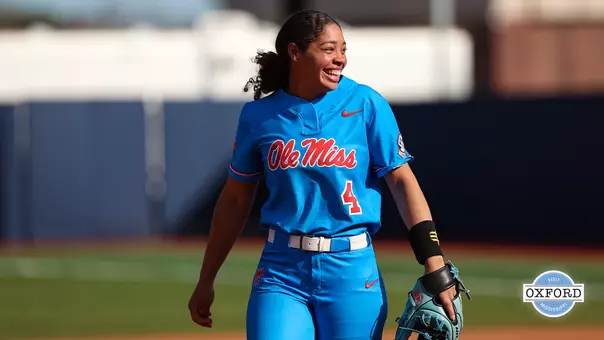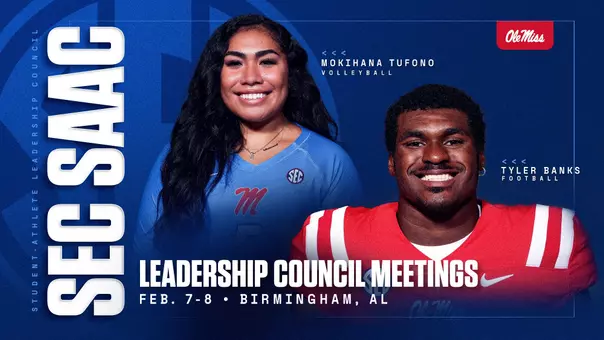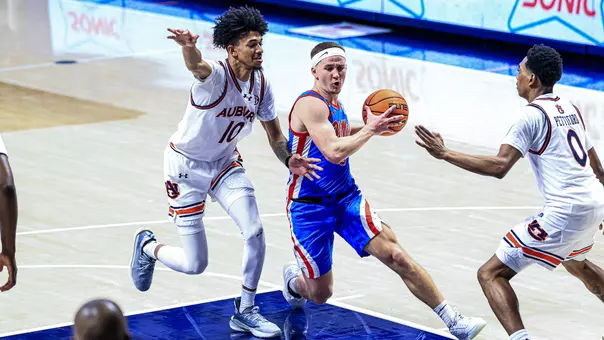The University of Mississippi Athletics

STAFF BLOG: Rebels Receive Cutting Edge Concussion Treatment
10/8/2010 | Athletics
Oct. 8, 2010
Shannon Singletary is in his seventh year with the Ole Miss athletics department and serves as Senior Associate Athletics Director for Sports Medicine/Strength & Conditioning.
October 10, 2010
With recent national attention being given to brain injuries (concussions), the Ole Miss Sports Medicine Team would like to inform the Rebel family about how we are staying on the cutting edge of management for concussions. To do this though, you need to know that concussions are defined as injuries to the brain that alters the way the brain functions. It is typically caused by a blow to the head or body from contact with another player; hitting a hard surface such as the ground or floor; or being hit by an object such as a ball or bat. The brain is a soft organ that is surrounded by fluid and protected by the skull. Because the brain is suspended in fluid and is not securely fixated within the skull it has a tendency to move within the skull when force is applied. If the skull suddenly decelerates or is hit, the brain moves within the fluid and can crash against the skull. Thus causing damage / bruising to the brain. This damage causes symptoms such as amnesia, confusion, headache, loss of consciousness, dizziness or balance problems, double vision, nausea, feeling sluggish or foggy, feeling irritable, concentration or memory problems and slowed reaction times. Data collected by the NCAA shows concussions represent five to 18 percent of the total reported injuries, depending on the sport. According to the latest research from other experts, damage caused by concussions can even last a lifetime and multiple concussions potentially could be the cause of some forms of dementia and depression. On a positive note, with proper care at the time of the first concussion, the brain, like other parts of the body, can heal and the athlete can resume activity.
The care of concussions actually happens before the injury even occurs. Every Ole Miss student-athlete participating in any sport receives a battery of baseline testing. This pre-participation testing occurs before practice even begins and includes ImPACTâ„¢ (a neuropsychological assessment) as well as objective balance testing. The ImPACTâ„¢ is a test that measures cognitive functions such as attention span, working memory, sustained and selective attention time, response variability, non-verbal problem solving and reaction time. By administering the balance testing and the ImPACTâ„¢ testing prior to the first practice, our team physicians can have a comparison study to help them objectively determine when a student-athlete's brain is functioning just as it was prior to the injury. Our team physicians and athletic trainers will also perform a physical exam at the time of injury and will reassess the athlete daily until the athlete is allowed to return to play. During the period of recovery and while the student-athlete is symptomatic following injury, the student-athlete rests both physically and cognitively until such time that he/she is asymptomatic. On some occasions, it is recommended to remove the student-athlete from any activities that increase concussive symptoms. These activities can include reading, class work, taking tests and sport-specific meetings. How do we objectively tract their symptoms from day to day? We use what is called Symptom Evaluation Form (SCAT2). This form is completed daily and the self-reported symptoms are tracked. Once the athlete reports they are having no symptoms and the team physicians feel that the athlete clinically is symptom-free, then the athlete begins performing exercise progressing to non-contact, sport-specific exercise. Before returning to competition, the concussed athlete's test scores must be equivalent to the base line scores, and the athlete must be free of any concussion symptoms at rest and be able to perform strenuous exertional exercises without experiencing any concussion-like symptoms.
In August 2010, the NCAA passed new legislation requiring each school to have a formal Concussion Management Plan on file. Also, the NCAA provided helpful educational literature to help schools come into compliance with this new legislation. We have posted educational posters in lockerrooms so that our athletes can properly learn the symptoms of a concussion. Our sports medicine team at Ole Miss is in compliance with these new rules and supports all efforts in research so that better care and prevention can take place. Here at Ole Miss, we believe that concussions can only be prevented and managed by the "team approach." This team includes our athletic trainers and team physicians providing clear return-to-play guidelines, our coaches providing proper coaching techniques, game officials providing enforcement of rules, our equipment managers providing proper equipment fitting, and of course our athletes reporting their symptoms. By everyone working together and staying current in the research of sports-related brain injuries, we can provide the best care available in sports medicine. To view our official Ole Miss Sports Medicine Policy on Concussions, click on the following link: 2010 Ole Miss Concussion Policy (PDF).
Shannon Singletary DPT, ATC, CSCS
Senior Associate Athletics Director-Sports Medicine / Strength & Conditioning
University of Mississippi




